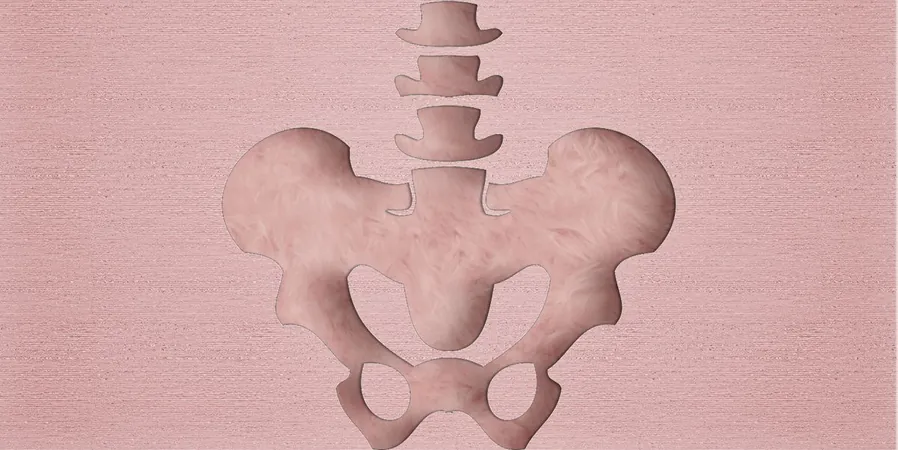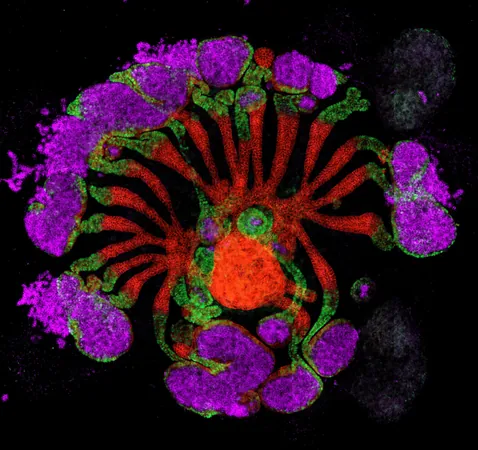
How Your Diet Could Be Worsening Your IBD Symptoms: What to Avoid!
2025-09-14
Author: Jia
The Hidden Impact of Diet on Inflammatory Bowel Disease
Researchers from the Medical University of Lodz in Poland have uncovered startling insights into how diet directly affects the severity of inflammatory bowel disease (IBD), which includes the chronic conditions of Crohn’s disease and ulcerative colitis.
A groundbreaking study has revealed that individuals adhering to anti-inflammatory diets are significantly more likely to experience remission or only mild symptoms of IBD. On the other hand, those whose dietary choices lean towards pro-inflammatory options could find themselves grappling with moderate-to-severe symptoms—up to three times more likely!
IBD: A Widespread Challenge
IBD affects millions in the United States alone, with estimates from the CDC placing the number between 2.4 and 3.1 million. Despite ongoing research, the exact cause remains elusive, though a mix of genetic and environmental factors is suspected. While there is currently no cure, treatments can effectively alleviate symptoms and enhance quality of life.
The Role of Diet in Disease Management
In their pursuit of understanding IBD better, scientists are increasingly focusing on lifestyle choices, particularly diet. A recent study published in Nutrients analyzed the dietary habits of 90 participants, split nearly evenly between those with Crohn’s disease and those with ulcerative colitis.
Among participants, 36% were in remission, 22% exhibited mild symptoms, 31% dealt with moderate issues, and 11% suffered from severe ailments. To gauge severity, researchers utilized established indexes like the Crohn’s Disease Activity Index and the Partial Mayo Score for ulcerative colitis.
Diving Into Dietary Choices
Participants were interviewed about their food intake over the previous 24 hours and completed questionnaires detailing broader eating patterns. This data helped determine their Dietary Inflammatory Index (DII), providing insight into how various foods affect inflammation.
According to the Crohn’s and Colitis Foundation, red meats and heavily processed foods can spur inflammation, while fruits, vegetables, and omega-3-rich items potentially offer anti-inflammatory advantages.
The Findings: A Clear Connection
While the overall DII scores showed no major differences between those with Crohn’s and ulcerative colitis, the connection to disease severity was undeniable. Participants with mild symptoms or in remission reported lower, more anti-inflammatory DII scores, while those with severe symptoms recorded higher, pro-inflammatory scores.
Even after considering factors like age and treatment types, the correlation remained strong: individuals following pro-inflammatory diets faced significantly worse IBD outcomes.
Towards a Healthier Future
While the study did not link DII scores to blood cytokine levels—possibly due to the limited sample size—the findings highlight the promising role of an anti-inflammatory diet in managing IBD symptoms. As research continues, the culinary choices you make could be the key to unlocking relief from your IBD challenges!




 Brasil (PT)
Brasil (PT)
 Canada (EN)
Canada (EN)
 Chile (ES)
Chile (ES)
 Česko (CS)
Česko (CS)
 대한민국 (KO)
대한민국 (KO)
 España (ES)
España (ES)
 France (FR)
France (FR)
 Hong Kong (EN)
Hong Kong (EN)
 Italia (IT)
Italia (IT)
 日本 (JA)
日本 (JA)
 Magyarország (HU)
Magyarország (HU)
 Norge (NO)
Norge (NO)
 Polska (PL)
Polska (PL)
 Schweiz (DE)
Schweiz (DE)
 Singapore (EN)
Singapore (EN)
 Sverige (SV)
Sverige (SV)
 Suomi (FI)
Suomi (FI)
 Türkiye (TR)
Türkiye (TR)
 الإمارات العربية المتحدة (AR)
الإمارات العربية المتحدة (AR)